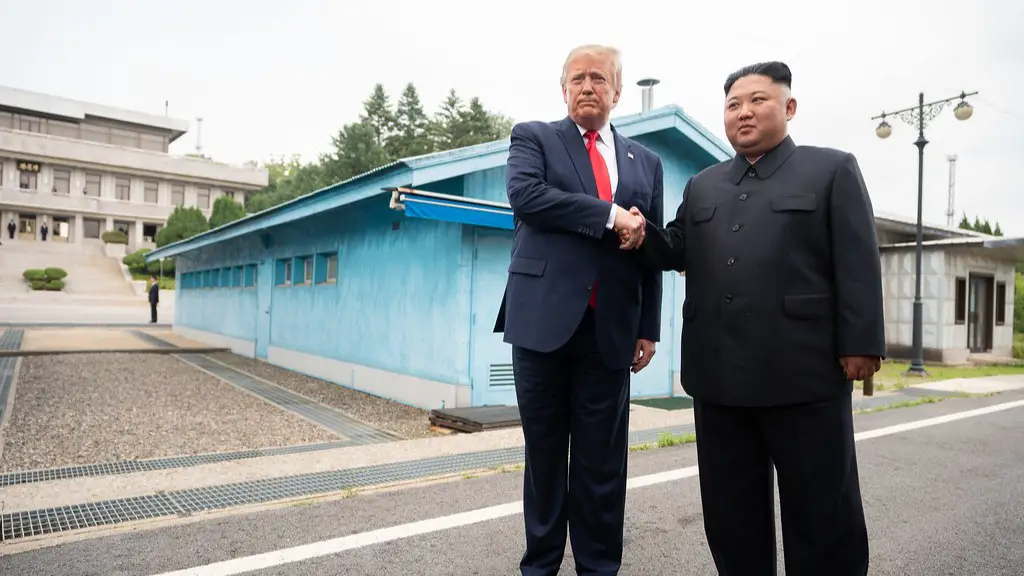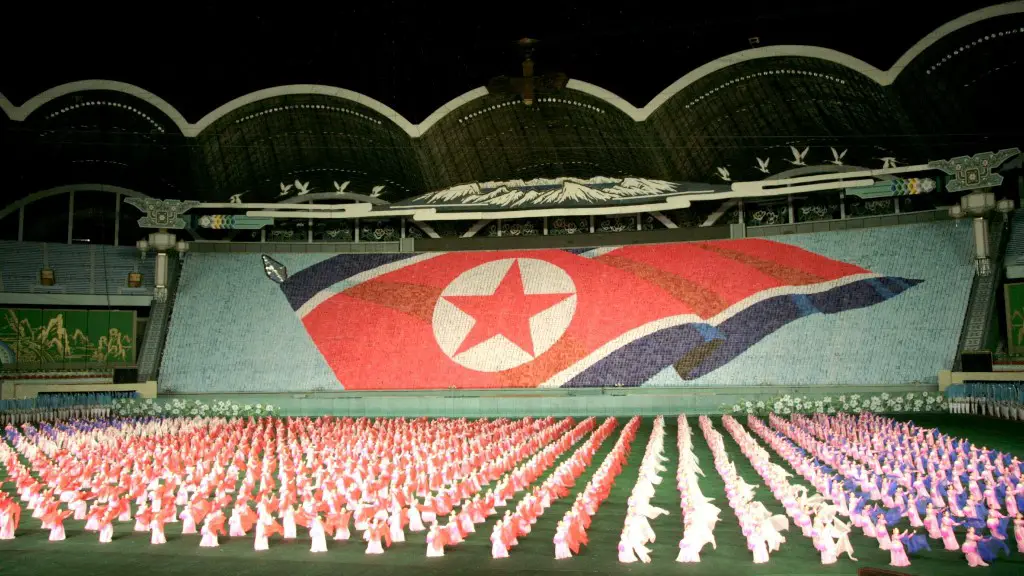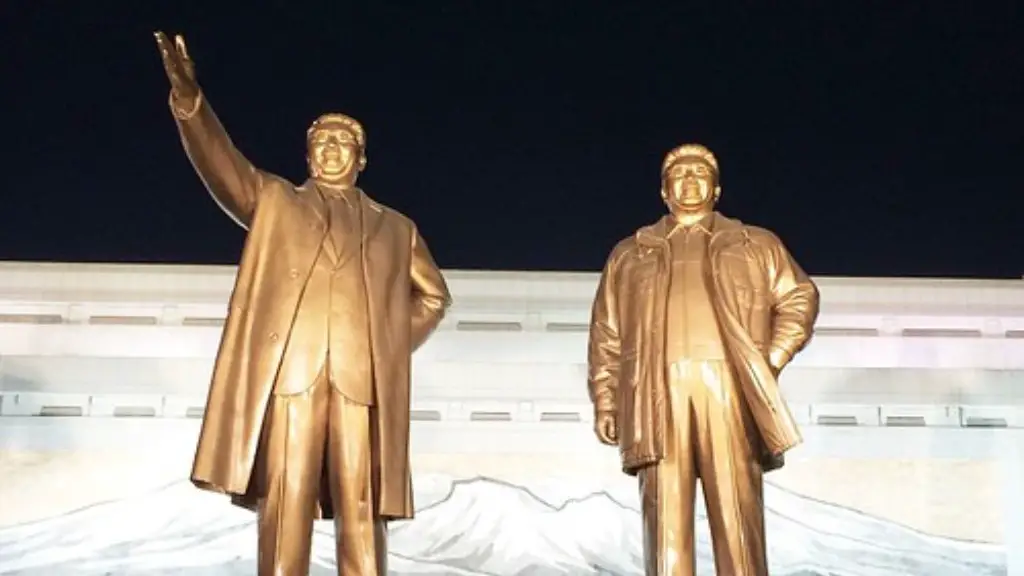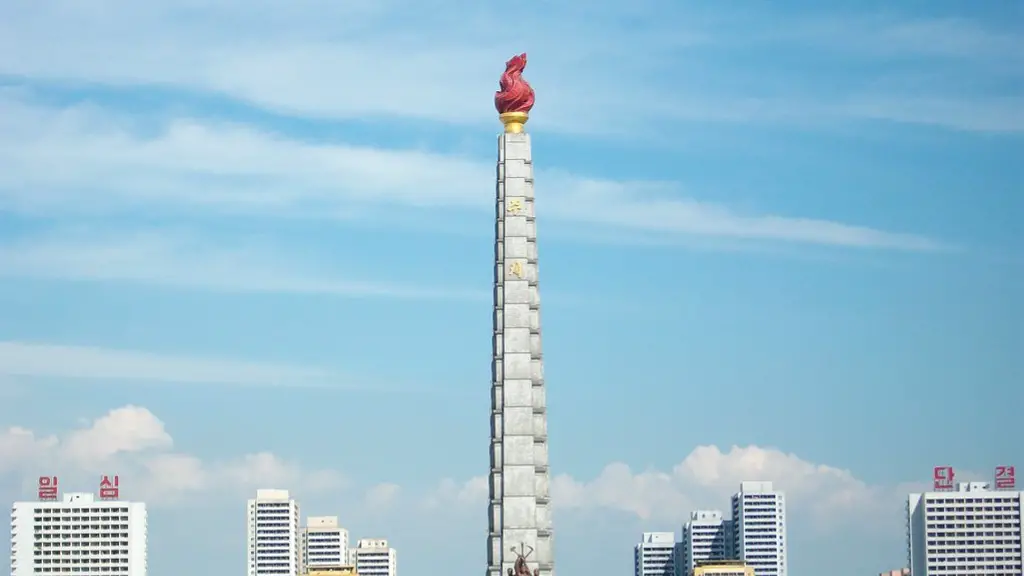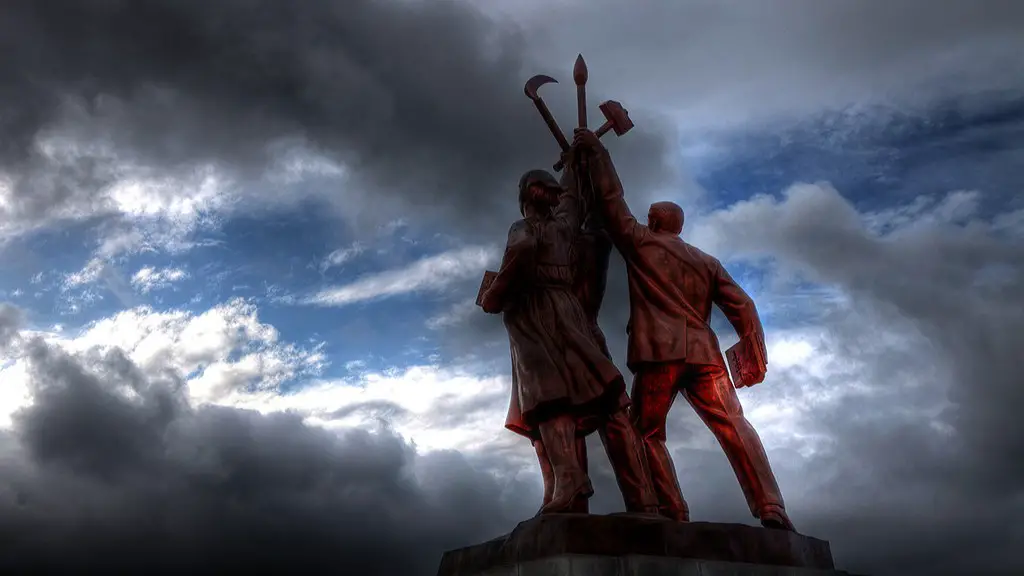Background Info
Otto Warmbier was a young man from Ohio who was travelling the world in 2016. During his travels he chose to visit North Korea as a prescheduled tour. However, shortly after his arrival in the country, he was arrested and sentenced to 15 years of hard labour.
Warmbier was accused by North Korean officials of attempting to steal a sign from the walls of the Yanggakdo International Hotel. He was convicted in a secret trial and his reason for visiting the country was not accepted as sufficient.
After he was arrested, Warmbier’s family released a statement offering an explanation for their son’s decision to visit North Korea. They said that their son had been misled: “Otto was enticed by authorities in North Korea with the false promise of a guided tour, and instead was detained, tried and held in harsh conditions for the past seventeen months.”
Reaction from the U.S. Government
The US government protested Warmbier’s detainment and sentence, and requested to speak directly with North Korean officials about his case. Officials also announced that multiple requests to visit Warmbier in prison had been denied. Secretary of State, Rex Tillerson urged the North Korean government to release Warmbier, saying “”We have a shared understanding of the seriousness of the situation and we are urgently engaged in addressing it.”‘
President Donald Trump also offered his support to Warmbier’s family and called North Korea a “brutal regime”. He tweeted that North Korea’s actions were “a total disgrace” and he deemed Warmbier “one of the worst detainees in recent memory.”
The US government’s response to Warmbier’s detainment increased tensions between the two countries. The US State Department warned US citizens against travelling to North Korea saying “Do not assume that joining a group tour or hiring a tour guide will prevent North Korean authorities from detaining you or arresting you.”
Verdict and Impact
Warmbier was released from prison on June 13, 2017, but he was in a coma. He was immediately rushed back to the US and doctors laterconfirmed that he was suffering from severe brain damage. He died 6 days later, and an autopsy revealed that the brain damage was caused by a lack of oxygen.
Warmbier’s death drew worldwide attention and condolences, and sparked a discussion about the risks of travelling to North Korea. It also had a major impact on the relationship between North Korea and the US. The day after Warmbier’s death, the State Department issued a warning strongly recommending that American citizens not travel to North Korea.
The day after Warmbier’s death, UN Ambassador Nikki Haley stated that “We must never forget Otto. North Korea has to be held accountable for his death, no matter what.” She also pointed out that “North Korea should be considered responsible for all the catastrophic consequences of Otto’s imprisonment, and thereby held accountable for his death.”
Expert Perspectives
Experts have varying opinions about the reasons for Warmbier’s death. Some experts argue that he was not mistreated but rather suffered from a neurological disorder. According to further claims, Warmbier’s case is an example of North Korean propaganda and the country’s regime uses American’s such as Warmbier as tools to foster anti-American sentiment.
Others argue, on the other hand, that Warmbier’s death was a result of the poor state of North Korean prisons. They argue that the prison system is inhumane, with prisoners often subjected to torture, poor nutrition and medical care, and inhumane conditions.
Analysis and Insights
It is difficult to know the truth about Warmbier’s death, as there is still a lack of clarity surrounding the situation. What is certain is that Warmbier was a victim of North Korea’s oppressive regime, and his death has sparked a debate on the risks associated with travelling to North Korea.
This case is a stark reminder of the dangers posed by North Korea’s totalitarian regime, and of the need for the international community to take a stand against human rights violations in the country.
Effects on North Korean Tourism
Warmbier’s death has had a major impact on North Korean tourism, with several countries n- including Australia, the United Kingdom, the United States and South Korea- banning their citizens from travelling to the Democratic People’s Republic of Korea (DPRK).
The US State Department has warned US citizens against travelling to North Korea, with the governments official statement reading:”Do not assume that joining a group tour or hiring a tour guide will prevent North Korean authorities from detaining you or arresting you.”
Tourists from other countries have also been subject to arrests and detention in North Korea, and travel companies offering tours to the DPRK have had to review their policies and take measures to ensure the safety of their travellers.
Pressure from the International Community
Since Warmbier’s death, the international community has been pressuring the North Korean government to improve its human rights record and to release the remaining American detainees. In December 2017, the United Nations General Assembly passed a historic resolution condemning human rights abuses in North Korea, and calling on the North Korean government to address the issue.
In addition, the US government has imposed various economic sanctions against North Korea in response to their human rights record. The US has also pressured other countries to cut off economic and diplomatic ties with North Korea and stepped up diplomatic efforts to bring about its denuclearization.
Effects on Worldwide Opinion on North Korea
Warmbier’s tragic death has had a major impact on public opinion on North Korea. Since Warmbier’s death, the North Korean government has been receiving increasingly negative coverage in the international media, with a number of outlets painting the country as a dangerous and oppressive regime.
The death of Warmbier has also sparked debates about the possibility of opening diplomatic relations with North Korea and has led to greater awareness of North Korea’s human rights abuses. As a result, more people are now calling for stricter measures to be put in place in order to prevent individuals from travelling to North Korea.
Support from the Warmbier Family
The Warmbier family have been using their platform to raise awareness about the dangers of travelling to North Korea and to spread the message that “No other family should have to endure what the Warmbier family has endured”.
The family launched the “Otto Warmbier Humanitarian Fund” in 2018, which supports humanitarian efforts and activities in North Korea and provides aid to people who are suffering under the regime. The Warmbier family have also been pushing for further sanctions on North Korea and have been advocating for an end to their nuclear and ballistic missile programmes.
Conclusion
The death of Otto Warmbier has had a profound impact on international opinion regarding North Korea, with countries and organisations around the world calling for greater awareness, stricter measures and tougher sanctions against the North Korean regime. His death has also opened up a dialogue about the risks of travelling to North Korea and has made people more aware of the suffering and human rights abuses occurring in the country.
